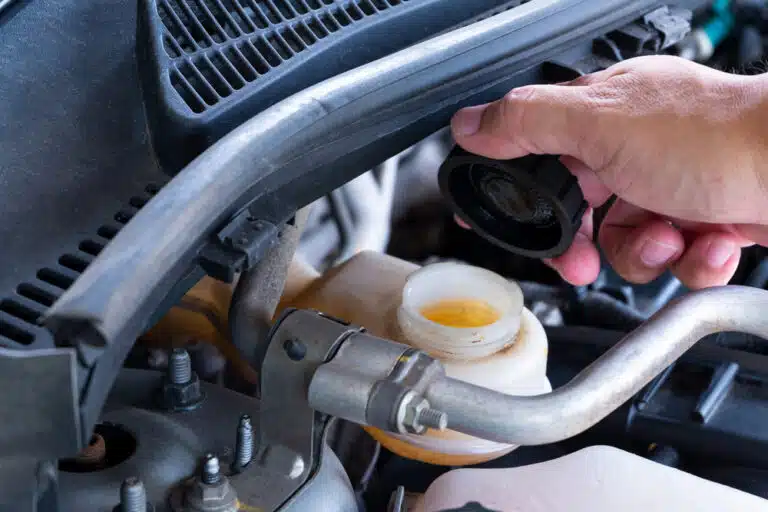
Car fluid leaks are a common issue that vehicle owners encounter. These leaks can lead to various problems if not addressed promptly. This guide will explore the types of fluids that can leak, their causes, signs of leaks, and how to address them.
What Are Car Fluid Leaks?
Car fluid leaks refer to any fluid that escapes from a vehicle’s system, often pooling under the car. These leaks can signify underlying mechanical issues and should be diagnosed and repaired as soon as possible.
Common Types of Car Fluids
Engine Oil
Description: Engine oil lubricates the engine’s moving parts, reducing friction and preventing wear.
Signs of a Leak: Dark, oily spots under the car; low oil levels.
Transmission Fluid
Description: Transmission fluid helps in the smooth operation of the vehicle’s transmission.
Signs of a Leak: Red or brown puddles under the car; difficulty in shifting gears.
Coolant
Description: Coolant regulates the engine temperature, preventing overheating.
Signs of a Leak: Sweet-smelling liquid; green, orange, or pink puddles.
Brake Fluid
Description: Brake fluid enables the brakes to function properly by transferring force.
Signs of a Leak: Clear or yellow fluid; a soft brake pedal.
Power Steering Fluid
Description: Power steering fluid assists in steering the vehicle with ease.
Signs of a Leak: Whining noise when steering; low fluid levels.
Fuel
Description: Fuel is essential for the engine to run.
Signs of a Leak: Strong gasoline smell; pooled liquid under the car.
Causes of Car Fluid Leaks
Worn or Damaged Seals and Gaskets
Over time, seals and gaskets can wear out due to heat, pressure, and age, leading to leaks.
Loose Connections
Loose hoses or connections can result in fluid escaping from the system.
Rust and Corrosion
Metal components can corrode over time, especially if exposed to moisture or road salt, leading to leaks.
Impact Damage
Accidents or road debris can damage fluid reservoirs and lines, causing leaks.
Temperature Fluctuations
Extreme temperature changes can cause materials to expand and contract, potentially leading to leaks.
Identifying Fluid Leaks
Visual Inspection
Regularly check under your vehicle for fluid puddles. Use cardboard or paper to help identify the color and type of fluid.
Monitor Fluid Levels
Keep an eye on your fluid levels and check them regularly. A drop in fluid levels may indicate a leak.
Listen for Unusual Sounds
Be attentive to any strange noises, as they may indicate fluid-related issues.
Smell
Certain fluids have distinct smells. For instance, coolant has a sweet smell, while oil has a petroleum odor.
Addressing Fluid Leaks
DIY Inspection
Tools Needed
- Jack and jack stands
- Pans or trays for collecting fluids
- Rags for cleanup
- Basic hand tools for tightening connections
Steps to Inspect for Leaks
- Park on Level Ground: Ensure your vehicle is on a flat surface.
- Lift the Vehicle: Use a jack to raise the vehicle and secure it with jack stands.
- Check Fluid Levels: Start by checking all fluid levels under the hood.
- Look for Puddles: Examine the ground under the vehicle and identify any fluid puddles.
- Inspect Hoses and Connections: Look for signs of wear, cracks, or loose connections.
Professional Help
If you cannot identify or resolve the leak, consult a mechanic. Professionals have specialized tools and expertise to diagnose and repair fluid leaks effectively.
Preventing Fluid Leaks
Regular Maintenance
- Change Fluids Regularly: Follow your vehicle’s maintenance schedule for fluid changes.
- Inspect Seals and Gaskets: Check these components periodically for signs of wear.
Drive Carefully
Avoid rough driving conditions that may cause damage to fluid lines and reservoirs.
Protect Against Corrosion
Regularly wash your vehicle, especially in winter, to prevent rust and corrosion.
Conclusion
Car fluid leaks are an issue that should not be ignored. By understanding the types of fluids, their causes, and how to identify and address leaks, you can maintain your vehicle’s health and ensure safe driving. Regular maintenance and prompt attention to any signs of leaks will help prolong the life of your car.
